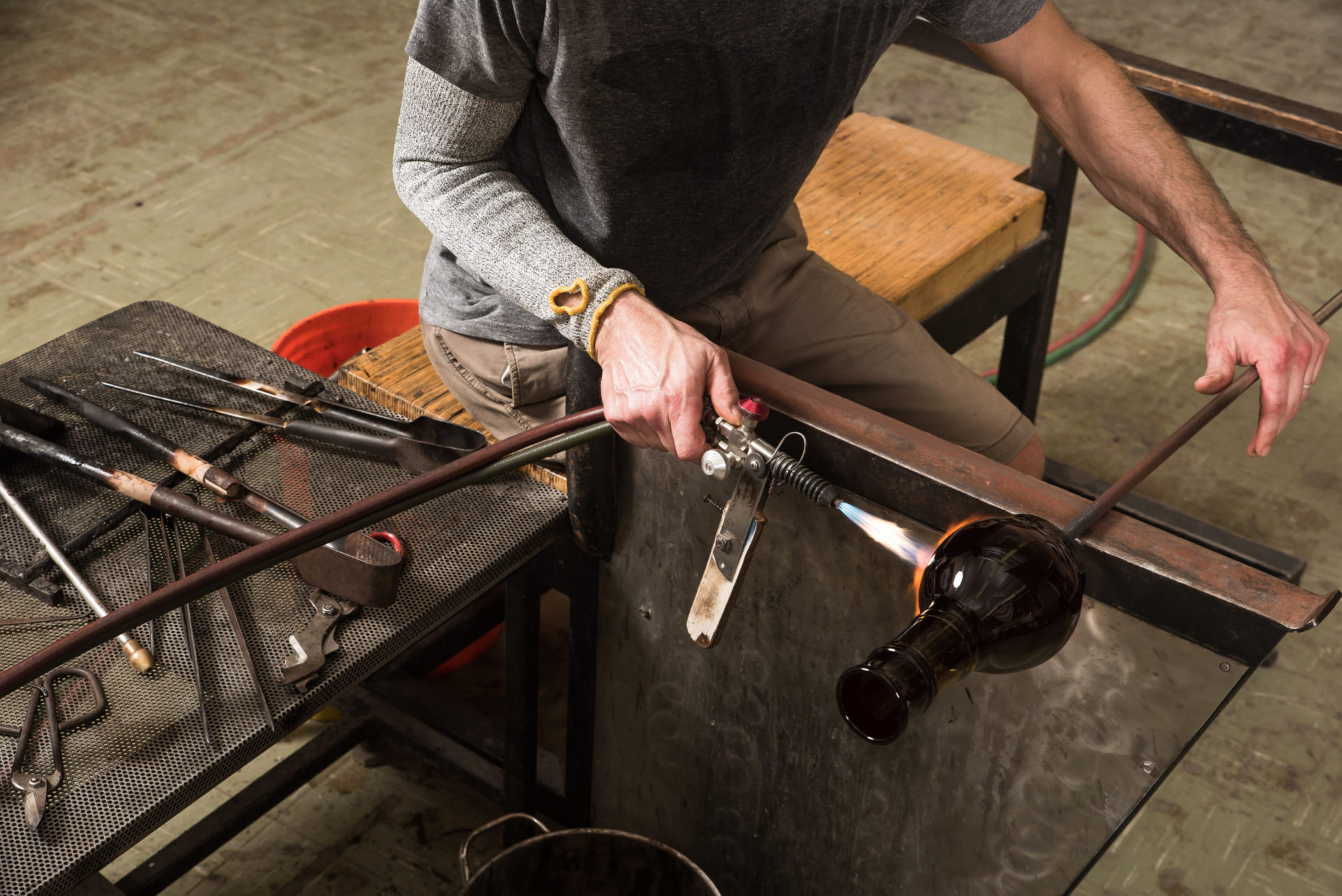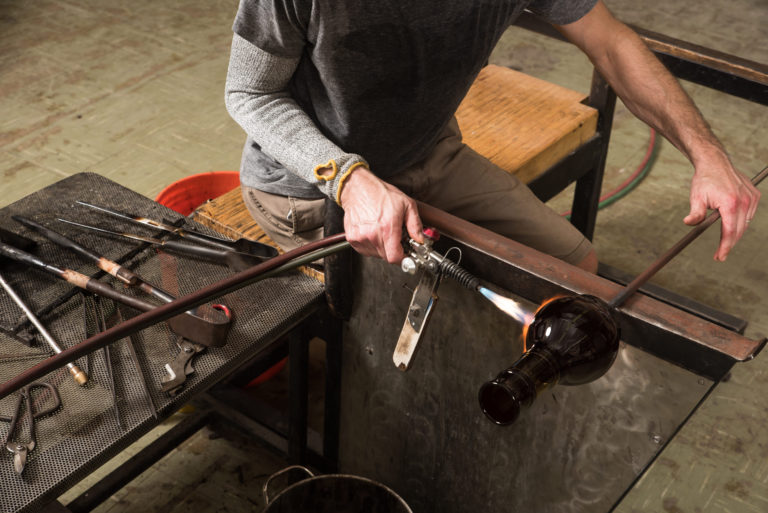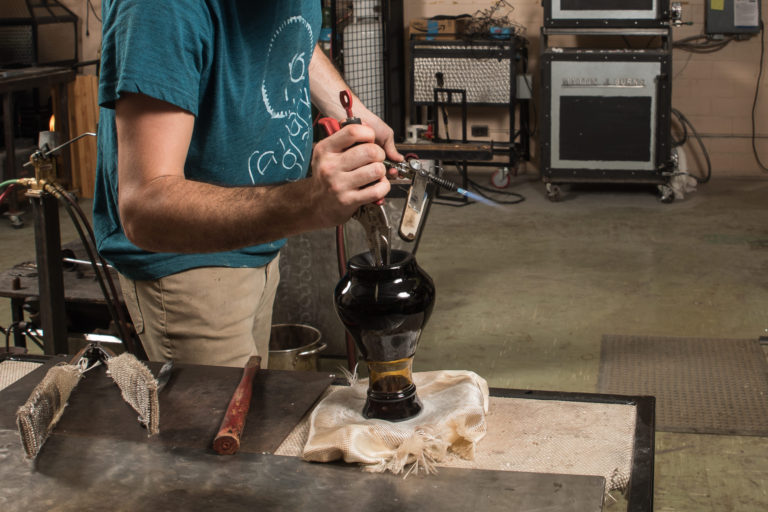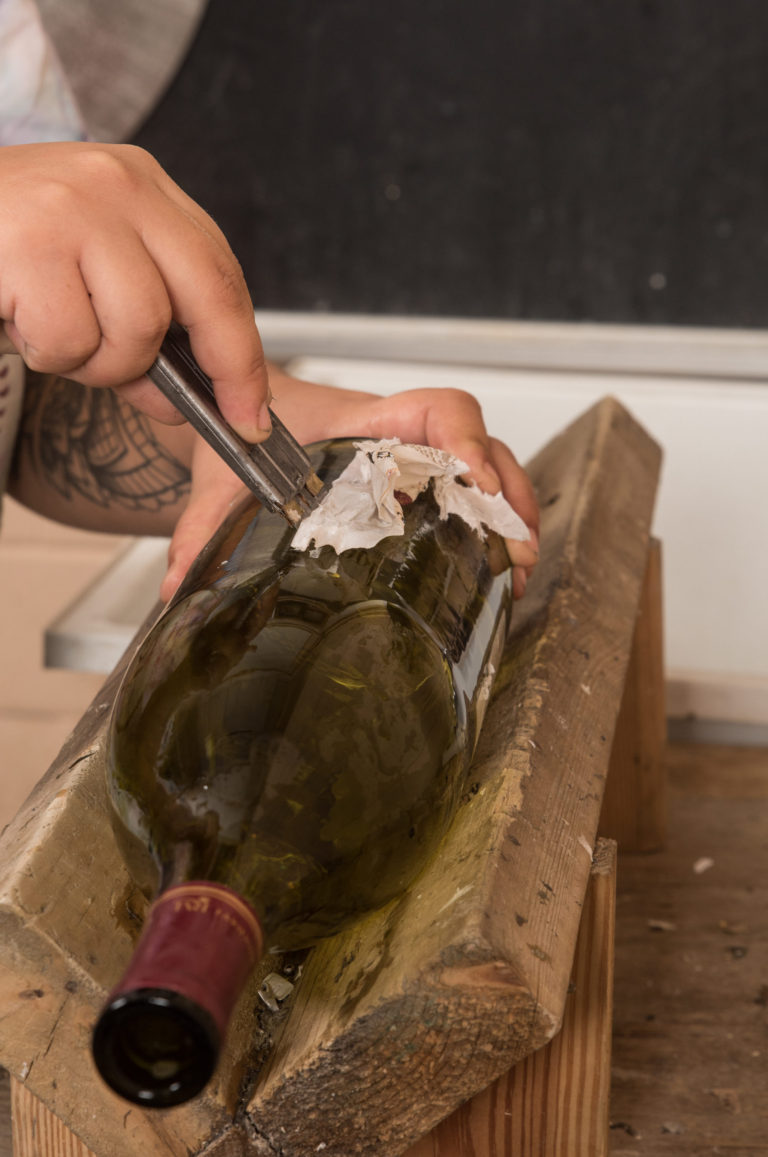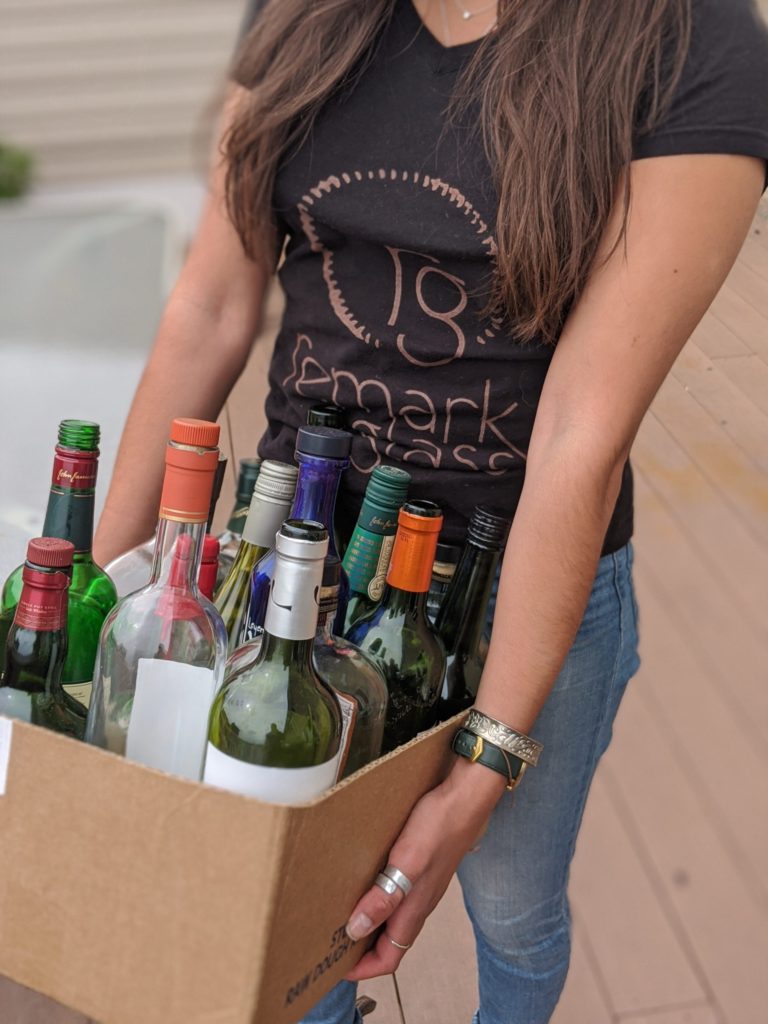How would you explain your organization in 300 words or less?
Remark Glass is a recycled glass design studio in Philadelphia. Our team was founded by glass makers driven to make use of the resources we had available, post consumer glass bottles and jars. Our original product line of dinnerware and decor is created by reheating and reforming bottles so that each piece retains the markings and color from its past. Now, we’re 5 years old and our studio has been developing cold, warm, hot, and flat glass methods for glass recycling.
How is sustainability incorporated into your process?
Sustainability in glass is going to be a process, but we start by going back to our roots. Glass can be recycled in a closed loop. Generally, our reheat and reform process is energy efficient, because it avoids melting glass to furnace temperatures for that line of work. We use eclectic furnaces as we plan to stay adaptable. Also, we maintain a zero waste status by ensuring that less than 3% of the material we process becomes landfill waste.
What was the reason you decided to pursue sustainable practices?
Our main goal originally was to build an independent glass studio. It became clear to us that it was going to be difficult to secure a supply of studio glass. Adapting to recycled glass was really challenging at first, but now we see so much potential in bringing skilled glass making to the abundant material.
What would you like to see in the future for sustainability in art?
As we look toward a sustainable future that trends away from excessive and wasteful goods, we can see how societies will value their local crafts people. In glass, we can offer closed loop recycling and also supply local brands and designers with handcrafted wares.
What impact are you seeing & how do you measure success?
We avoid defining success by how much recycling we process, and instead work toward how we can make it useful, and how that changes the way people think about glass. Other makers, glass manufacturers and even towns have shown interest in our project, and reach out to see what can be applied to them. Our clients may buy one drinking glass and then realize how much they enjoy using it. Or, they may just come by to browse, learn that even waste glass can have potential, and then become long time suppliers as they sort and donate the glass they use at home. Success to us is making glass useful, and closing loops. Glass doesn’t belong in the trash.
How has the COVID-19 pandemic impacted your studio or organization?
Our studio has been operating throughout the pandemic, but it has been tough. Everyone’s lives have been impacted on a personal level, as the sickness has come close and family routines are disrupted. Our studio has been less productive and under staffed as we recover. However, we have spent the year developing our sister nonprofit, Bottle Underground, to pilot more solutions for glass in Philadelphia.

